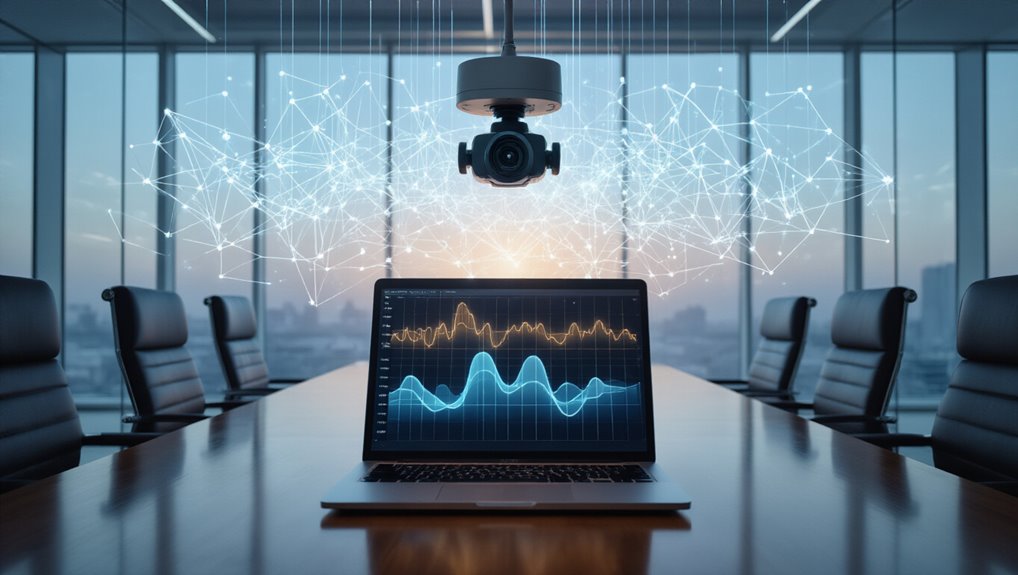As artificial intelligence systems become increasingly embedded in workplace operations, they silently collect and analyze vast amounts of sensitive information about employees and clients. This data collection isn’t always transparent, creating significant privacy concerns across industries. AI systems require substantial personal data to function effectively, analyzing patterns in employee behaviors, client interactions, and financial transactions.
AI systems silently gather sensitive data about us, often without transparency, raising serious workplace privacy concerns.
The statistics paint a troubling picture of public sentiment. About 68% of global consumers express concerns about online privacy, while 57% view AI specifically as a significant threat to their privacy. Trust is similarly low, with 70% of Americans reporting little to no confidence in companies making responsible AI decisions. These concerns aren’t unfounded—81% believe their data will be used in ways that make them uncomfortable. The average cost of data breaches has reached 4.88 million dollars globally in 2024, further highlighting the financial consequences of compromised information.
You should understand that AI integration brings complex regulatory challenges. Privacy laws vary globally, creating a fragmented compliance landscape for businesses. This complexity increases as companies deploy AI across different regions, each with unique data protection requirements. Data Subject Requests (DSRs) are increasing as consumers become more aware of their privacy rights. The 246% rise in DSRs between 2021 and 2023 demonstrates growing consumer vigilance and demand for control over personal information.
The risks extend beyond regulatory concerns. AI systems analyzing financial and client data can potentially reveal sensitive information through their insights and recommendations. Consider these key issues:
- AI-powered automation requires access to thorough employee and client data.
- Privacy-by-design principles must be embedded during AI development.
- Data privacy technology adoption is expected to increase by 46% in coming years.
Cybersecurity concerns compound these issues. AI will disrupt security protocols, creating both challenges and opportunities. Generative AI particularly increases cybersecurity needs, with application and data security spending projected to rise by over 15% through 2025.
Organizations must implement robust governance frameworks to address these concerns. Privacy-enhancing computation techniques are becoming essential tools to protect data in use. As AI becomes more deeply integrated into business operations, the tension between technological advancement and privacy protection will require careful navigation to maintain trust and compliance.









